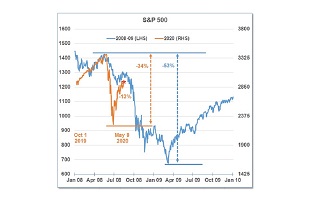
eResearch | In this past week’s PocketGamer Connects Digital #2 (“PGC”) conference, the topic of COVID-19 and its effects on the gaming industry was raised numerous times, as the industry experienced a surge in user activity and engagement due to consumers staying isolated at home with more free time.
In a session called “A look into the Impact of COVID-19”, Emory Irpan, the Head of Publisher Operations at Unity Technologies, the developer of a game engine which powers 53% of the top played video games, stated the average number of simultaneous games played by users increased by 5.9% since the onset of COVID-19, as more people tried out multiple games during lockdowns.
 On a panel called “The Games Business During and After the COVID-19 Crisis”, Louise Shorthouse, a Games Industry Analyst at Omdia, a global technology research firm, outlined five reasons why the gaming industry was so robust:
On a panel called “The Games Business During and After the COVID-19 Crisis”, Louise Shorthouse, a Games Industry Analyst at Omdia, a global technology research firm, outlined five reasons why the gaming industry was so robust:

(1) Games are cost-effective in terms of price-per-hour consumptions.
(2) Games keep people connected through various avenues.
(3) Games are low-cost, supported by the free-to-play market, especially on mobile.
(4) Games can be accessed through a multitude of devices from anywhere.
(5) Games have lots of variety, catering to diverse populations.
Gaming Industry During COVID-19
In a keynote speech, Ioana Hreninciuc, CEO of GameAnalytics, a developer of gaming analytics platforms and tools, shared a chart (below) using their Benchmarks+ analytics tool to show the gaming industries’ increase in unique users, week-over-week, since the onset of COVID-19.

In March, when the W.H.O. announced the pandemic and Europe initiated lockdowns, the gaming industry experienced a peak 16% increase in the number of new unique users, which then started to decrease towards April due to high growth rates in the initial spike.
Though the gaming industry experienced a surge in user activity and engagement in the last couple of months, games on average dropped in retention rates, mainly due to an increased volume of new users filtering through games.
However, the top 2% of games, typically owned by large publishers with capabilities to continue developing new content for popular titles, experienced a double in retention rates. The top 2% of games have a five times higher retention rate when compared with the rest of the games.
COVID-19 Impacts on Studios
At its core, the gaming industry is remote-adaptive and online-based, both from a production and consumption point of view, which explains why popular game titles are currently spiking in user activity and retention rates as developers release new content remotely and consumers play remotely.
On a panel called “How the Lockdown Unlocked the Games Industry”, Charlotte Cook, VP of Gaming at Bidstack, a leading in-game advertisement platform, stated that business development and sales efforts became easier since the pandemic, as people are home with more time for calls.

However, on the same panel, Branko Milutinovic, CEO of Nordeus, a Serbia-based independent studio, expressed concerns about how the change to remote working environments has disrupted his team’s creative environment, as his developers usually bounce ideas off each other while socializing in a physical workplace.
In addition, Milutinovic stated that 17% of EU studios are closing due to slowdowns in game funding. Without backing from a large publisher, small studios will most likely reach the end of their run rates unless they can bootstrap it themselves.
Overall, the gaming community is confident the industry will thrive throughout and beyond the COVID-19 pandemic. Only time will tell how the gaming industry will be affected as continued economic uncertainties impact discretionary spending.
//




